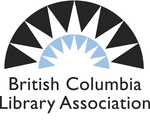
BC Library Conference 2020
F11 - Navigating the Climate Crisis: Creating hope in a time of uncertainty.
Session Description
In October 2018, the United Nations’ Intergovernmental Panel on Climate Change (IPCC) released a report titled, Global Warming of 1.5 °C, which aimed to inform and galvanize policy makers to act. It illustrated the stark dangers of the climate crisis and inspired activism worldwide.
Unfortunately, greenhouse gas emissions are still rising, and the need for mitigation as well as adaptation efforts is urgent. In the coming decades, everyone will be impacted. Many of the most serious consequences will be felt by those who are most vulnerable. How can libraries mitigate their own impacts from emissions and resource use? How can libraries help communities adapt? What roles are libraries and librarians stepping into as they acknowledge, spread awareness, and address our rapidly changing climate?
Our goal is to bring forward a conversation about the climate crisis in the hope of inspiring further dialogue, sharing, and action. Specifically, our panel will address:
- Advocacy at work and in life. How are librarians working for change within their organizations and communities? What skills do librarians have that help them to be effective advocates and activists?
- Libraries’ emissions, resource use, and responsibilities. The transformative change required means that like all other organizations, libraries need to eliminate greenhouse gas emissions and decrease resource use. Using the examples of the University of Victoria Library and initiatives like Zero Emission University, we will look at how libraries can assess and reduce their ecological footprints.
- Capacity to build resilient communities. This includes the need for greater funding to ensure libraries can support individuals and communities as they process ecological anxiety and grief, advocate for change, and adapt to new impacts and risks. How do we advocate for structural changes (e.g. BC Library Act) that will ensure libraries are supported as essential components of our social infrastructure?
Speakers
Helen L. Brown, University of British Columbia Library
Biography
Helen is a Librarian in the UBC Woodward Science Library, where she focuses on knowledge synthesis methodologies, evidence-based practice, and working with medicine and health sciences researchers. Helen has a particular interest in the major scientific reports on climate change, mass extinction, and risk, and how this evidence factors into our decision making. Motivated by the IPCC's Special Report on Global Warming of 1.5 °C as well as climate scientists and activists, Helen recently helped form community activist networks, wrote about decarbonizing professional development in BCLA Perspectives, and worked with faculty, staff, and students to advocate within the University.
Dr. Lisa P. Nathan, University of British Columbia
Biography
Lisa P. Nathan is Associate Professor at UBC's School of Information. Lisa teaches design-oriented courses related to information practice, information ethics, Indigenous information initiatives, and information policy. Through collaborations with inspiring individuals, Lisa strives to (re)imagine and (re)design dominant ways of managing information to address long-term societal challenges (e.g., climate crisis). She draws on design to investigate ways information stewardship can better support social and ecological justice. Her academic contributions include design methods (e.g., The Envisioning Cards, Value Scenarios) and design theory (e.g., Values as Hypothesis, Multi-lifespan Information System Design).
David Boudinot, University of Victoria Libraries
Biography
David Boudinot is the Acquisitions & Electronic Resources Librarian at the McPherson Library at the University of Victoria and works on projects related to vendor lobbying, Open Access, and plastic pollution in marine environments. David has experience working with the University of Victoria Library’s substantial carbon emissions report assessing staff travel, commuting, building energy use, waste generated, shipping, and paper use, to establish a baseline and consider changes and offsets.
Allison Richardson
Biography
Allison is KPU's E-resources and Music Librarian. Inspired by the student school strikers and motivated by the IPCC's Special Report on Global Warming of 1.5 °C, she co-founded Surrey for Future to support climate strikes in Surrey and to undertake political action at the municipal and regional level. Surrey for Future coordinated the successful city-wide campaign for Surrey's climate emergency declaration. She believes librarians' skills are a great match for activism and community organizing.
Sally Taylor, University of British Columbia Library
Biography
Sally Taylor is Interim Head of the Woodward Library and Biomedical Branch Library at the University of British Columbia. She co-chairs the Library #ClimateAction Team, a passionate group of UBC Library employees committed to changing library practices to reduce carbon emissions and providing opportunities for colleagues to learn about climate change. She read her first IPCC report in graduate school 25 years ago and wishes we had acted sooner.